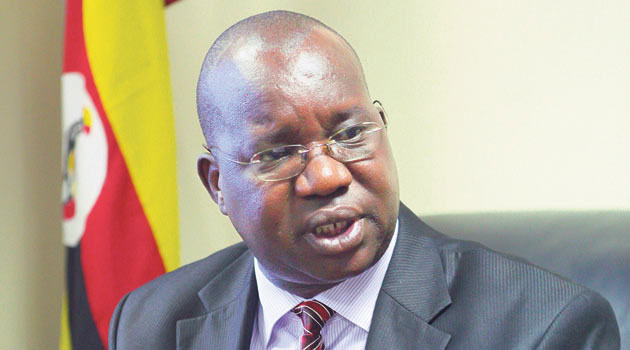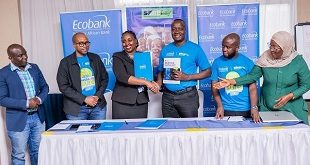
Kotido, Uganda | THE INDEPENDENT | Just hours after the death of Father Simon Lokodo, the former Minister for Ethics, there was a discussion online over whether he had actually been excommunicated from the Catholic Church after he joined politics.
Lokodo, 64, died suddenly on Saturday while in Geneva, Switzerland, where he had gone as part of Uganda’s delegation to attend a UN human rights meeting.
While alive, Rev. Fr. Lokodo, regularly noted that his happiest day was when he was ordained a catholic priest in 1986. However, as he approached his silver jubilee in the ministry, in 2009, he was suspended by Pope Benedict XVI.
The Pope, through the then Apostolic Nuncio to Uganda, Archbishop Paul Tschang In-Nam, decreed that Fr Lokodo couldn’t continue to carry out priestly duties and also participate in elective politics.
Lokodo was serving as parish priest for Karenga, in Kotido Diocese, when he decided to join elective politics. Despite warnings from his superiors, the priest contested for and won the Dodoth County parliamentary seat after the death of the incumbent MP, Ael Ark Lodou, in June 2006.
However, his suspension from priestly duties was widely mistaken for ex-communication. Rev. Fr. Jacinto Ogwal, a professor of theology and church history and a former Otuke County MP who also suffered a suspension for the same reason just like Lokodo, says that the public and media got a wrong perception of what was done to them (him and Lokodo).
Ogwal, a classmate of Lokodo’s at St. Mary’s Major Seminary, Ggaba, explains that they were never excommunicated. Instead, the church leadership suspended them from exercising priestly duties when they took up political offices. Suspension from exercising priestly duties is very different from excommunication.
“Excommunication is very rare in the Catholic Church, for instance, it can be served to one who preaches or teaches heresy and refuses to give up on it after warnings from the (catholic) church authorities,” Ogwal noted.
Fr Ogwal says excommunication means one is completely excluded from the church and you are not allowed to attend any activity of the church.
The former legislator, who represented Otuke County in the Ninth Parliament, says that in church history, priests and prelates used to participate in active politics but as time went on, the church noted that this wasn’t a good practice and it was coded in Canon Law that a priest cannot be an elected politician.
Rt. Rev Giuseppe Filippi, the Bishop of Kotido Diocese, says Lokodo’s suspension was based on a disciplinary matter. Bishop Filippi, a personal friend to the deceased, says the Catholic Church no longer allows active priests or ministers to participate in politics given the fact that serving these two equally important roles might lead to a conflict of interest in some way or the other.
Bishop Filippi adds that the faithful and general public should note that Lokodo was never condemned by the church for his choice to serve the people of God through politics and neither was his priesthood revoked. The bishop, however, adds that as long as Lokodo was a politician he could not actively carry out his priestly duties.
To emphasize the matter Fr. Ogwal gives an example of Fr. Anthony Musaala of Kampala Archdiocese, who was suspended in 2013 but when the church was convinced that he had reformed was allowed to exercise his priestly duties and redeployed.
Musaala had written a seven-page letter accusing priests and bishops in Uganda of negating their vow of celibacy. This was interpreted as indiscipline and the then Archbishop, Dr Cyprian Kizito Lwanga, suspended him.
Before Fr Lokodo and Fr Ogwal, there are other examples of religious men and women who have been stopped from doing religious work within the Catholic Church when they decided on joining public office. A famous example is that of Sr. Margaret Magoba, a former deputy Chairperson of the Electoral Commission, who gave up her job when the Church advised her to do so.
In different media interviews, Lokodo noted that being suspended was his saddest moment as he wanted to perform priestly duties. “I have given them (the Catholic Church) a headache because I still use my title and live as a priest. They were waiting to see me get married and produce children, but I didn’t,” he told the Independent Magazine in 2014.
During his days outside of active priesthood, Lokodo is said to have remained a staunch Catholic and always attended Mass. He couldn’t also resist condemning Catholic priests in service who were violating their vow of celibacy. “Really, those who cannot afford celibacy let them marry instead of producing children left and right. Those who want children should leave the priesthood; you cannot have both,” he stressed in an interview with The Daily Monitor newspaper.
Bishop Filippi revealed that Lokodo contemplated leaving politics and getting back to his priestly duties. The prelate said that the deceased reached out to him personally to inform him about the matter. Filippi adds that although this step was not to be taken in the immediate future, he advised Lokodo on how the process could be handled.
In Cabinet, Lokodo was appointed the state minister for industry, a position he held from February 2009 to May 2011 when he was appointed ethics minister replacing Dr Nsaba Buturo.
With his desire to promote conservative social values, the priest rose to fame as he became a crusader criticizing different immoral acts, which according to him, were destroying the fiber of Ugandans as a people.
Lokodo has also been a strong supporter of the now controversial Anti-Homosexuality and Anti-Pornography legislations. It was for his views on such matters that he was loathed and adored in equal measure by different groups of people.
While championing the fight on immorality, the priest-turned-politician always found himself clashing with Pentecostal and Born Again pastors when he criticized their actions saying that they were corrupt and preying on the faithful by extorting money from unsuspecting believers in anticipation of miracles.
In 2019, bad blood between Lokodo and Born Again pastors reached a climax when the former, in his capacity as the ethics minister, proposed a policy requiring all clerics, in all denominations, to obtain formal theological training and a certificate from a recognized institution.
A section of Born Again church leaders branded the policy as Lokodo policy saying that it was targeting them. In 2021 Lokodo was dropped from the cabinet. But, after two months he was appointed as a commissioner at the Uganda Human Rights Commission where he has been serving till his death.
Lokodo’s Biography
Born on October 28, 1957, in Kaabong District, he earned a bachelor’s degree in theology and a master’s degree in theology from the University of Rome, where he studied for nine years during his early years of formation. He also possessed other education qualifications, according to information retrieved from the parliament website, including a Diploma in Rural Sociology, a Diploma in Social Communication, and a Diploma in Philosophy and Social Science.
After his ordination, Lokodo served as the parish priest of Kaabong from 1986 until 1994. He was the Kotido Diocese’s development coordinator from 1991 to 1996. The dedicated priest worked on translating the Bible into Akarimojong from 1994 to 2000. He was named parish priest of Karenga in the year 2000.
Lokodo was also multilingual, speaking English, Italian, French, German, and Spanish in addition to his native tongue.
****
URN
 The Independent Uganda: You get the Truth we Pay the Price
The Independent Uganda: You get the Truth we Pay the Price



